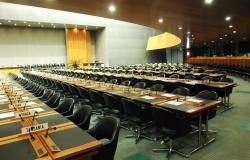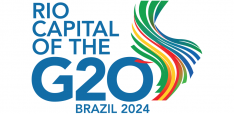Knowledge Production in International Trade Negotiations is a High Stakes Game

Pressures from global North countries on the global South to adopt multilateral rules on digital trade exemplifies coercive networks of knowledge production and dissemination – under the guide of the ‘development’ agenda. A trade negotiator for the WTO unpacks the power politics of the global trading system, and argues the decolonisation debate taking place within higher education must extend to intergovernmental organisations.
While knowledge, evidence and statistics have an evident direct impact on international trade negotiations – being the sine qua non for governments to make informed policy decisions – asymmetries in knowledge production, dissemination and consumption prevail. I have felt this asymmetry first-hand as a trade negotiator in the World Trade Organisation (WTO).
Most recently, South Africa along with other global South country members have come under intense pressure and subtle maneuverings from developed countries to negotiate and adopt multilateral rules on e-commerce and digital trade. Within the WTO’s existing framework, e-commerce is understood to mean the ‘production, distribution, marketing, sale or delivery of goods and services by electronic means’.
It all began one summer’s day on 4 July 2016 when a major developed country tabled a submission on e-commerce and set out to refocus the WTO work programme on the positive linkages between digital trade and economic development. Until then there was minimal substantive work or discussions on e-commerce in the WTO. The non-paper listed sixteen seemingly innocuous ‘trade-related policies’, most of which have never been heard of by trade negotiators because they had previously been considered internet governance or ICT-related matters and not trade per se. Yet in a span of three weeks several other developed countries submitted papers, and by the end of the month a series of submissions entered the WTO’s workstream. Before long this policy agenda was being branded as ‘e-commerce for development’. Was this seemingly sequence trail of papers merely a coincidence or was it a part of a more coordinated effort?
Although proponents of ‘e-commerce for development’ were not pushing for negotiations at this stage, it became clear that their intention was to introduce multilateral rules on the subject. Indeed, the development of rules on e-commerce was part of a broader trade package being negotiated by the EU and the US – trade actors who wanted to be standard setters for a new comprehensive 21st century trade agreement. The template had already been developed during negotiations over the Trans-Pacific Partnership Agreement between powerful Asian and American economies and among developed and some developing countries as part of the Trade in Services Agreement. These economies have commercial incentives to push for the ‘free’ flow of data across borders and the banning of domestic rules governing digital platforms. Indeed, powerful tech incumbents have been actively lobbying their governments to push for such policies.
Despite the fact that there was no mandate to negotiate rules on e-commerce in the WTO, a narrative was already being created and a calculated strategy was working behind the scenes to advance this narrative through powerful networks of communication, knowledge production and dissemination.
There ain’t no such thing as a free lunch…
In the multilateral trading system, power politics is generously served and developing and least developed countries are on the menu. For proponents of new trade agreements, propagating a new policy agenda that encompasses the global South requires resources, capacity, developing country ‘friends’, smokescreens and a long-term strategy. ‘Divide and rule’ tactics are in no short supply in multilateral diplomacy. To defeat these tactics requires knowledge of the issues, the rules and the opposing side’s strategy.
In October 2016, a dedicated discussion on e-commerce was convened at the request of proponent Members who tabled submissions. The meeting was organised with such a questionable lack of transparency that the African Group raised procedural concerns and challenged this shift in priorities. Indeed, this new agenda was pushed despite the lack of resolution concerning existing areas of disagreement. Together with the global South, the African Group has for 18 years insisted that priority attention be given to mandated issues under the Doha Development Agenda, such as Agricultural reform, that would address the inequitable rules favouring developed countries.
For over three decades now, developing countries have been advocating for WTO rules to address the trade-distorting measures that allow developed countries to give massive subsidies to their farmers and agribusinesses. These subsidies distort global food production and continue to cause food and livelihood insecurity for more than half of the world’s population. Unfortunately, the interests of the powerful remain protected and there is very minimal movement on these issues. E-commerce, on the other hand, is gaining steam.
In less than three years since that first paper in 2016, the development narrative has been captured and reframed by western think tanks, institutions and leaders, espousing a one-sided neoliberal narrative about why e-commerce rules including free data flows are good for the global South. A partisan proactive agenda pervades WTO corridors, meetings and offices. Meanwhile International Organisations in Geneva that have a mandate on trade and development have abandoned all requirements of impartiality. They implore African countries to negotiate rules and they lobby developing countries through trade and ICT Ministries in capitals. In the background, multi-billion dollar digital technology titans are also helping to drive this agenda through a concerted strategy of knowledge generation, production and indoctrination, advanced without much thought of, and concern for, development or developing countries.
Examples of these tactics include filling up meetings with ‘expert speakers’ from technology firms, producing reports that are partisan to the views and positions of some Members, allocating developed country funded consultants to sit in and participate in internal meetings of developing countries, and using different platforms and fora to secure seemingly innocuous outcomes thus watering down positions.
Their discourse is built around the imperative of the ‘free’ flow of information and data across borders. According to their story, small enterprises in Africa can more easily access export markets through digital technologies and platforms. What is not told is the extreme level of market power and concentration by major platforms and digital companies due to network effects, and the power imbalances and rents that are extracted from small players that sell on these platforms. Data localisation – the idea that developing countries’ data should be used for their own citizens’ and companies’ development, rather than be captured by Silicon Valley companies – has become a taboo policy.
Many countries in the global South are enticed to join the negotiating table with the promise of aid, capacity-building and technical assistance. Programmes are donor-driven and, in the majority of cases, donor countries with vested interests use aid to advance their own economic agenda and way of thinking. This financial pressure in turn affects the way in which beneficiary countries make policies and can sow seeds of discord within well-established pacts and Groups (African; Least developed countries; and African, Caribbean and Pacific countries). Naturally this context shapes the negotiating dynamics and relationships between developing countries in the WTO.
This context is not new. The African Group has repeatedly requested that the objectives and transparency mechanism of the Aid for Trade initiative in the WTO be improved and strengthened. The model of aid and capacity-building in multilateral diplomacy is a multi-billion dollar industryand is used to help ensure that developing countries never truly become self-sufficient or independent.
Capacity-building is often a ruse for influence, with developed countries generously remunerating consultants out of the aid budget intended for beneficiary countries. Typically, these developed country consultants provide ‘advisory’ services to developing countries as part of African regional and multilateral negotiations and as a result have unfettered access to delegates, meetings and Ministries. These consultants often provide advice that are sympathetic or aligned with the positions and interests of their funders. These manipulative practices raise profound questions about the nature and history of knowledge production and the relationship between power, knowledge and sovereignty.
The decolonisation debate taking place within higher education must therefore extend to the aid industry. Knowledge production and ‘evidence’ is manufactured to advance specific agendas. While accountability for aid normally rests with beneficiary countries, the task of defining the criteria and objective evaluation of aid, especially in the WTO, remains the prerogative of donor countries. Why is this so?
This problem has its roots in the multilateral trading system itself. Both the General Agreement on Tariffs and Trade and its later reconfiguration as an international organisation, the WTO, were created to primarily serve the interests of major developed countries. With each new round of trade negotiations, the asymmetry in the rules has been exacerbated in their favour. Replacing the Doha round with e-commerce negotiations is the latest ploy.
‘Development’ is the single most important negotiating process for more than two-thirds of the WTO’s 164 country membership. Ironically it is also the most divisive issue. Simply put, developed countries have ideological, as well as economic concerns about industrialisation in African countries. The system is structured to perpetuate the marginalisation of developing countries.
For that situation to change we need an end to misinformation, one-sided statistics, arm-twisting and the perception of superior knowledge generation and production by most Western scholars, economists and negotiators who seem determined to ensure the entire machinery not only continues but is strengthened. Genuine development requires them to surrender that power. The global South must be enabled to develop its own capacity, on our terms, to identify our own priorities and develop rules that serve what we define as our collective interest.
Vahini Naidu is a trade negotiator for the Department of Trade and Industry at the South African Permanent Mission to the WTO in Geneva. The views expressed herein are hers alone and are not attributable to the Government of South Africa or any of its functionaries.
This first appeared on Africa @ LSE. It is part of the blog and podcast series Citing Africa which explores the global construction and imbalances of knowledge production.
Image credit: World Trade Organization via Flickr (CC BY-ND 2.0)


